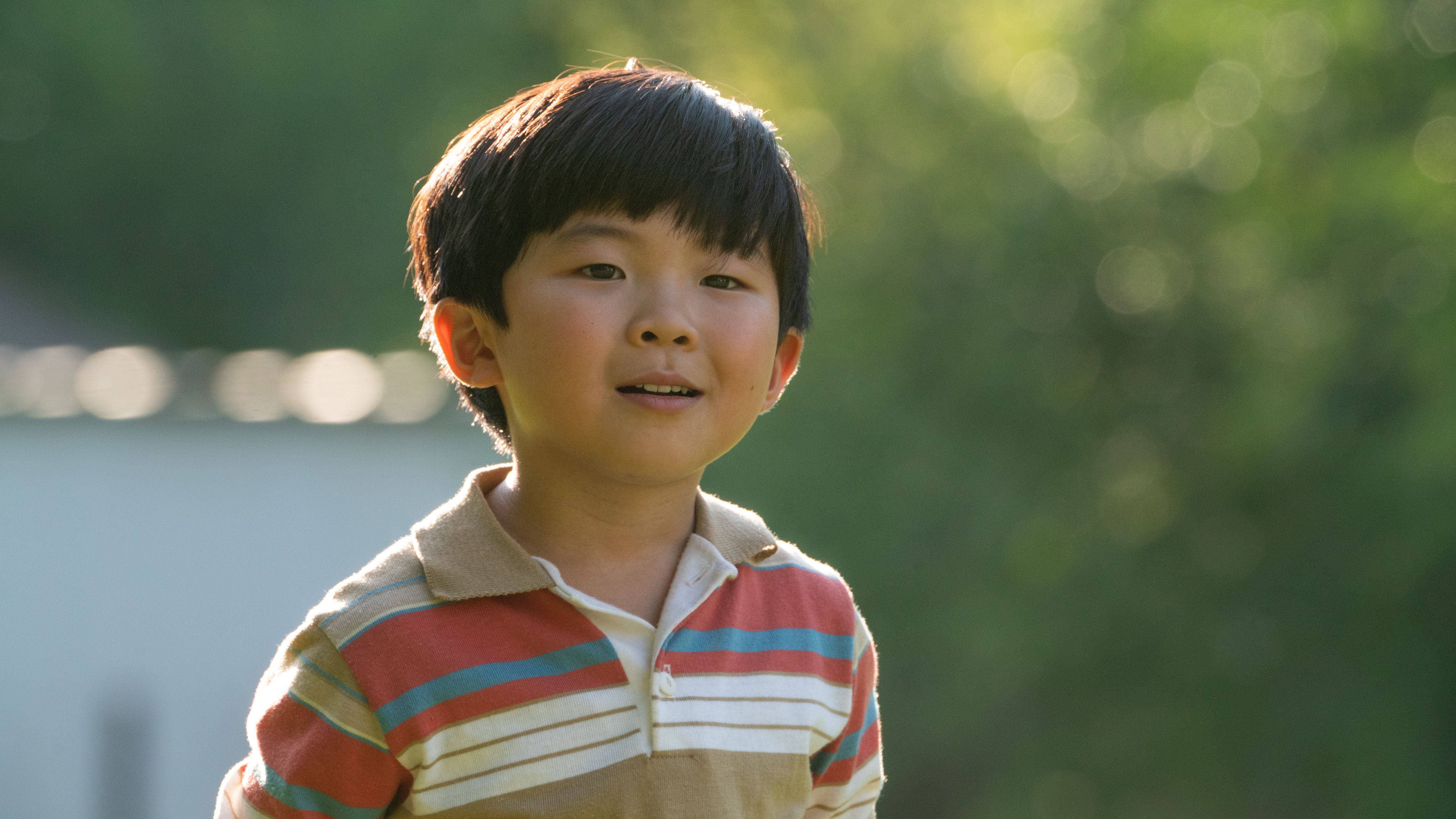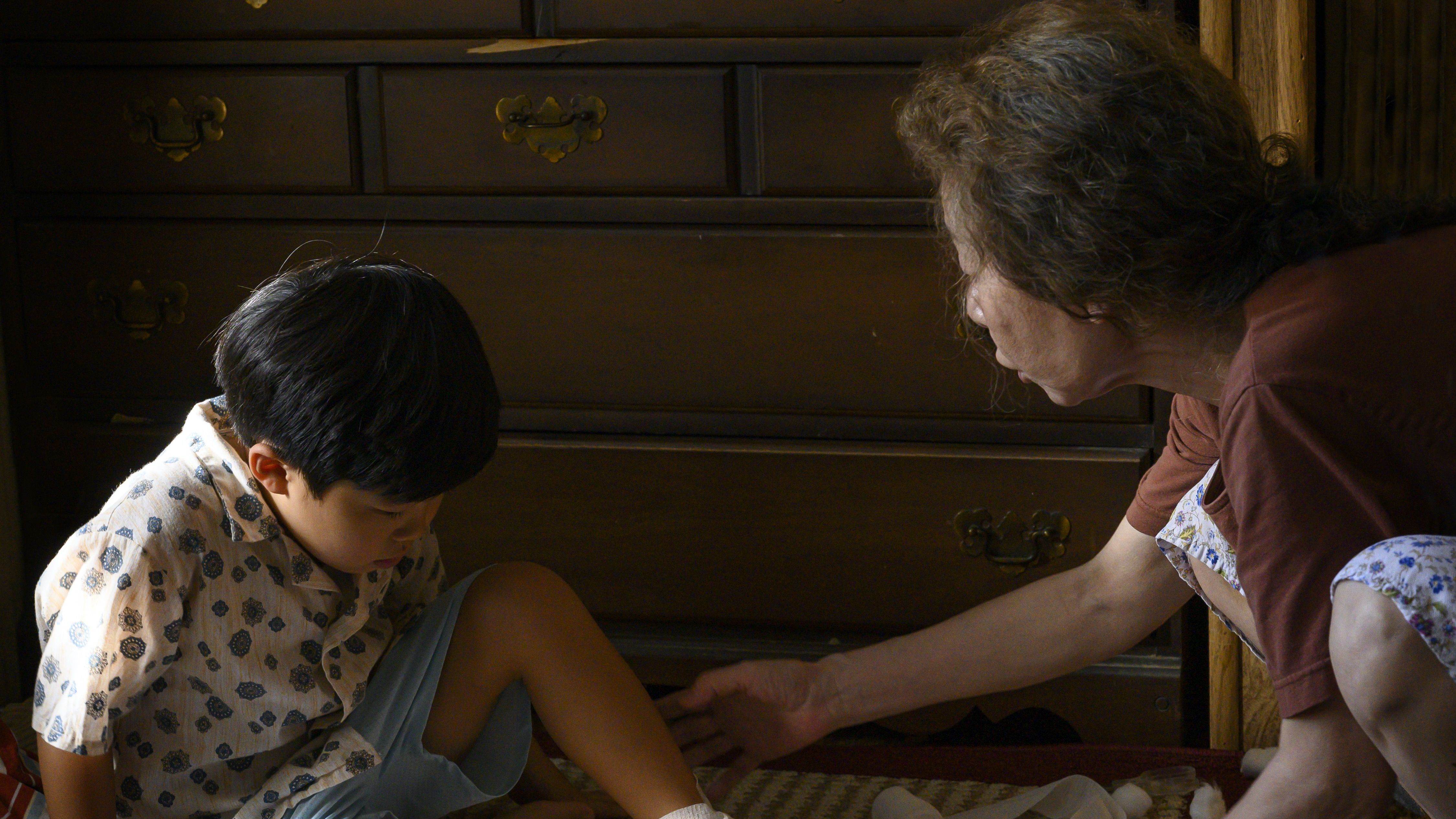'Minari' Tells the Story of a Family Trying to Make It in America
The film is up for six Oscars, including Best Picture and Best Director.
The title comes from the herb minari, a resilient plant that can grow just about anywhere. Set in 1980s Arkansas, Lee Isaac Chung’s semi-autobiographical Oscar-nominated film follows the travails of the Yi family’s dream to cultivate a land of one’s own during a time in Reagan-era America where 30,000 Koreans moved to the United States every year. I took the metaphor of resiliency as a cue to steel myself for the possibility of the Yi’s looming bankruptcy, or run-ins with racist white people, or worse. Instead, what unfolds is a gentle drama about the memories of a boy not-so-quietly observing his parents’ troubled marriage, and, more broadly, the family’s place in the constellation of American imperialism.
The story begins with the Yi’s move to a derelict plot of land in the middle of nowhere Arkansas. The only structure on the property is a beige mobile home propped up on wheels and cement blocks, forcing the family to awkwardly wiggle themselves into a home that doesn’t yet have a stairway at the entrance. Although the obstinate patriarch Jacob (Steven Yeun) teems with excitement over the idea of pulling himself up by his bootstraps and making a living tending crops, his wife Monica (Han Ye-ri) balks at their new circumstances. Their children, 7-year-old David (Alan S. Kim) and the slightly older Anne (Noel Cho) lack supervision while the couple works at a chicken factory–they manually separate chickens by sex–so the children must accompany their parents to their shifts.

Childcare isn’t the only issue–David has a dangerous heart condition, but Jacob’s insistence on farming keeps them far from any hospital that could treat the boy in an emergency. These challenges add to the already cold atmosphere that surrounds Jacob and Monica’s marriage. At some point along the road, the couple’s dreams began to diverge in the face of the harsh reality of being an immigrant in America. Where Jacob wants to “make it” with his farming business by any means necessary, Monica simply wants to ensure that she and her children are safe and happy. Meanwhile, David and Anne look on while their parents argue, shooting paper planes that say “Don’t fight” at them.
These challenges continue to mount. In an effort to irrigate his crops, Jacob hires a dowser to locate a viable well. After scoffing at the superstition of the dowser–”Korean people use their heads,” he tells David–the well that he digs himself runs dry. With his harvest threatened, he’s forced to make difficult choices that eventually prove to endanger his entire family. All the while Monica–whose faith in God rivals Jacob’s faith in his own (sometime poor) choices–remains lonely in the unfamiliar town and unsuccessfully seeks comfort in the local evangelical church. While both parents struggle to adjust, the children attempt to make friends with their peers who benignly ask them why their faces are “flat.”

The film is full of deliberate, impressionistic images of the countryside and sun drenched scenes that evoke the possibility of a new beginning. But the arrival of Monica’s mother Soon-ja (Youn Yuh-jung) reminds us that we’re all caught up in history and ancestry, no matter where you run off to. It is Soon-ja who brings minari seeds with her from Korea, who tells us that the plant grows nearly anywhere, who tells David not to worry about dying because he has so much living left to do. She’s brash and teaches the kids how to gamble, joins her grandchildren in drinking far too much Mountain Dew, and provides a lonely Monica companionship and food from home. Although her story isn’t explicated, the war-widowed grandmother is a living reminder that America’s violent adventures in East Asia has a very real effect on the people of that region–Jacob says that life was difficult in Korea–we know that one of the reasons has to do with US interventionism that left the country mired in a military dictatorship following the Korean War.
Minari is nominated for six Academy Awards: Best Picture, Best Director (Lee Isaac Chung), Best Actor (Steven Yeun), Best Supporting Actress (Youn Yuh-jung), Best Original Screenplay (Chung), and Best Original Score. Both Steven Yeun is the first Asian actor to be nominated for Best Actor.
How can I watch Minari?
Minari is now available on-demand. You can rent the movie on Amazon, Apple TV, Google Play, Vudu, and YouTube.
Get exclusive access to fashion and beauty trends, hot-off-the-press celebrity news, and more.
Zoe Guy is the digital fellow at Marie Claire, where she covers pop culture, hot celebrity gossip, movies and TV. She’s obsessed with Martin Scorsese’s adaptation of The Age of Innocence, anything written by Jesmyn Ward and stan Twitter.

